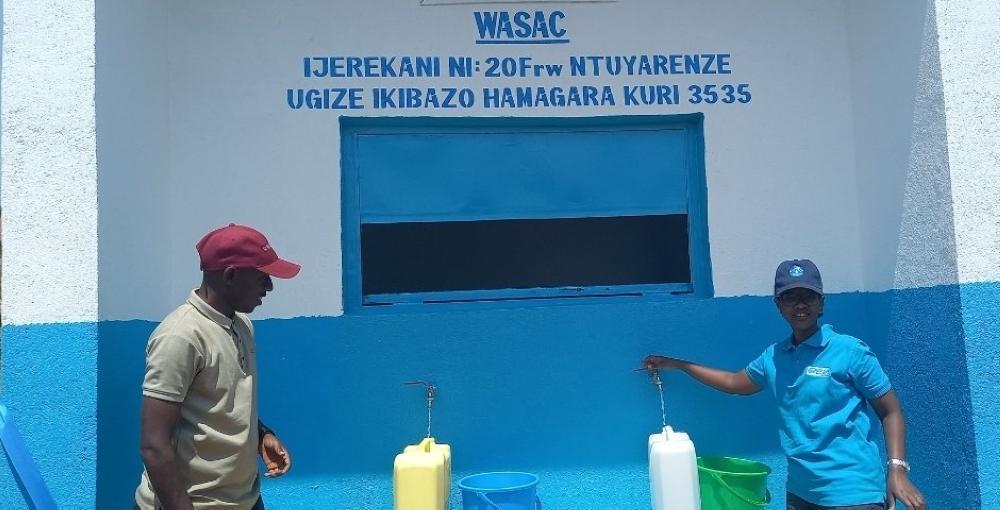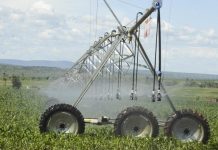Africa-Press – Rwanda. The Water and Sanitation Corporation (WASAC) has announced plans to introduce financial penalties for customers who delay in paying their water bills.
The move, part of broader reforms to enhance service delivery, is set to affect a significant portion of users who fail to pay on time.
According to Gisèle Umuhumuza, the Managing Director of WASAC Utility Ltd, penalties ranging from 0.5% to 1.5% of the total bill will soon be imposed based on the customer’s water usage. She disclosed this during a press briefing on June 13, stating that nearly half of water users delay payments beyond the 15-day grace period, often extending non-payment for over a month.
“We have a category of customers, about 50% who consistently fail to pay on time. Some delay for weeks or months, and others engage in water-related businesses without informing us, which complicates our operations,” she explained.
She added that WASAC is working closely with the Rwanda Utilities Regulatory Authority (RURA) to develop a fair notification system. Under the proposed approach, customers will receive reminders and be given a 30-day window to settle outstanding bills before fines are enforced.
“Our aim is not to penalize or cut off water supply. That would actually create more operational costs for us. The penalties are a last resort. Informed by what other utilities are already implementing, the charges will depend on the customer’s bill and their category of usage,” she added.
Omar Munyaneza, the CEO of WASAC Group Ltd, supported the initiative, highlighting that recent structural reforms improved service coverage and efficiency.
He noted that the water utility’s service branches increased from 20 to 33, and most services are now accessible online.
“Since April, new customers can subscribe digitally. We are also working with Irembo to allow all service requests online. In another reform, private contractors can now provide water meters and installation services, which are quality-checked in collaboration with Rwanda Standards Board,” said Munyaneza.
By next month, he said, WASAC will have extended water access to 2,966 formally recognized villages, with a national goal of full villages’ coverage (14837) by 2029.
Among other updates in WASAC’s new service charter is the requirement for new customers to provide a Unique Parcel Identifier (UPI) and pay Rwf20,000 for installation. Commercial clients must also present a valid RDB certificate.
Clients requesting additional meters will pay Rwf67,300, while a replacement for defective meters will cost Rwf6,000, unless a technical fault is proven, in which case replacement is free.
Umuhumuza clarified that water bills reflect service delivery costs rather than the water itself.
“Water is a natural resource, and it’s priceless. What we charge covers the cost of treatment, energy, infrastructure, and skilled labour that ensures safe and consistent water supply,” she said.
She urged the public to help minimize water loss due to damaged pipelines. WASAC has committed to responding to reported leaks within three hours, aiming to reduce technical losses and improve efficiency.
Although Rwanda has reached 90% water coverage, the rollout slowed during the COVID-19 pandemic period due to delays in importing essential materials. Umuhumuza assured the public that the utility is now accelerating expansion projects in partnership with local districts.
To tackle intermittent water supply in some areas, WASAC plans to build more water treatment plants.
It is also preparing for a significant rise in customer numbers. In 2024 alone, WASAC registered 54,000 new customers, and expects that figure to nearly double in 2025.
Currently, 384,000 households have piped water at home, a number projected to reach 1 million.
“We’re seeing rapid growth in new demand, especially in areas like Kanombe, Kicukiro, Rebero, Bugesera, Rwamagana, and Musanze,” said Umuhumuza.
For More News And Analysis About Rwanda Follow Africa-Press






